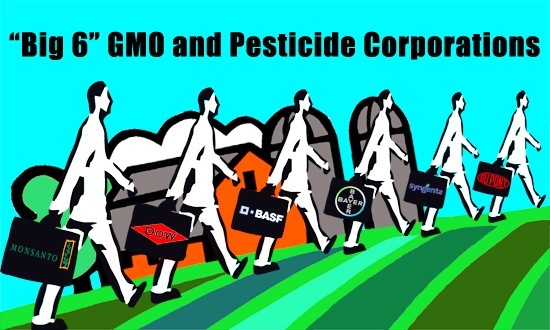Submitted by Rebekah Wilce on
After a barrage of ads, Washington voters slid from a 66 percent show of support for labeling genetically modified organisms (GMOs) in food six weeks ago to defeating the state's Initiative 522 for GMO labeling at the polls, with preliminary results showing 55 percent against.
But Brian Zylstra, a spokesman for Washington's Office of the Secretary of State, told Politico on Tuesday that as many as 40 percent of Washington State's ballots on Initiative 522 could remain uncounted because the state will accept all ballots postmarked by November 5. A definitive count will likely not be known until the end of the week or later, according to Politico. And the Yes on 522 Committee noted in a press release Tuesday night that "only one report of ballots" was in on election night, and "Washington State voters will have to wait a few more days to learn the outcome for I-522."
 The Center for Media and Democracy (CMD) reported last week that the forces arrayed against labeling GMOs in Washington State -- the Grocery Manufacturers Association, five chemical and biotechnology corporations (Monsanto, DuPont, Dow, Bayer, and BASF), and five real individual residents of Washington State -- had raised $17.1 million for ads dissuading Washington voters. Since then, corporations like from the likes of Monsanto, DuPont, Pepsi, Nestle, Coca-Cola, General Mills, Conagra, Dow, Bayer, and BASF have contributed an additional $5 million, the non-profit money-in-politics organization Maplight told CBS News.
The Center for Media and Democracy (CMD) reported last week that the forces arrayed against labeling GMOs in Washington State -- the Grocery Manufacturers Association, five chemical and biotechnology corporations (Monsanto, DuPont, Dow, Bayer, and BASF), and five real individual residents of Washington State -- had raised $17.1 million for ads dissuading Washington voters. Since then, corporations like from the likes of Monsanto, DuPont, Pepsi, Nestle, Coca-Cola, General Mills, Conagra, Dow, Bayer, and BASF have contributed an additional $5 million, the non-profit money-in-politics organization Maplight told CBS News.
Committees in support of the initiative raised $7.8 million in favor from over 15,000 donors, a little over a third of what opponents of the measure raised, according to the Yes on 522 Committee.
CMD reported last week:
Most Americans have already eaten genetically engineered foods -- and lots of them. An estimated 60 to 70 percent of all food U.S. consumers buy is genetically engineered. (The exception is organic foods, which are prohibited from using any genetically engineered ingredients.) Yet, when asked, most Americans either say they do not know if they've eaten genetically engineered foods or say that they have not.
Because of these statistics, supporters of GMO labeling initiatives in Washington State and California, as well as supporters of labeling legislation in states across the country, call these initiatives "right to know" measures.
Connecticut and Maine have passed laws to label GMOs, but the implementation of those state laws is contingent on a certain population threshold in a number of other nearby states approving similar laws. Washington State's voter initiative would have taken effect more quickly. Sixty-four other countries already require labeling of GMOs in foods. A Mexican judge recently banned the planting and selling of GMO corn in the country. A 2012 Mellman Group Study showed that 91 percent of U.S. voters favored having the U.S. Food and Drug Administration (FDA) require labels on GE foods and ingredients.
